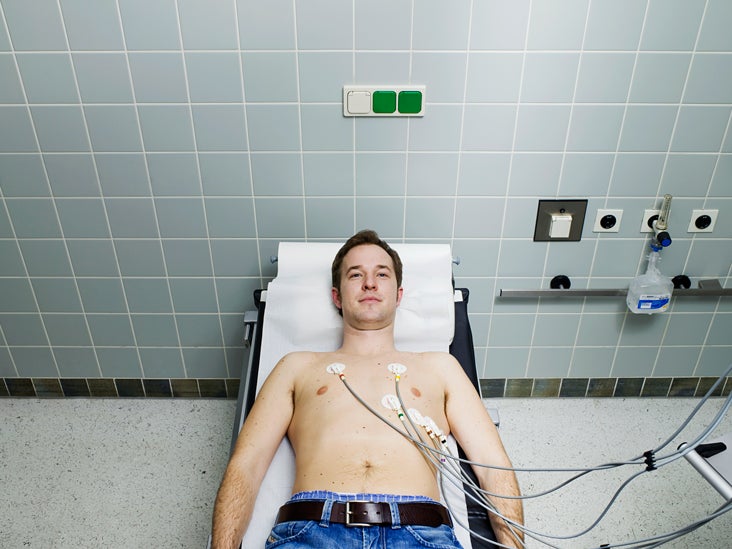Cor pulmonale: Causes, symptoms, treatment, and more - Medical News Today
Cor pulmonale: Causes, symptoms, treatment, and more - Medical News Today |
| Cor pulmonale: Causes, symptoms, treatment, and more - Medical News Today Posted: 27 May 2021 03:24 PM PDT  Cor pulmonale is a condition that affects the right ventricle in the heart, altering its structure and proper functioning. It is caused by a respiratory system disorder. Pulmonary hypertension is a common underlying cause. A person with cor pulmonale will have an enlarged right ventricle which cannot effectively pump blood. If a person does not seek treatment for the condition, the ventricle can be overworked and ultimately fail to pump blood at all. A doctor may be able to prevent the condition by treating underlying conditions, such as pulmonary hypertension, before they lead to cor pulmonale or other life-threatening issues. This article looks at what cor pulmonale is, the symptoms of the condition, along with how doctors diagnose and treat it. Experts define cor pulmonale as changes to the function and structure of the right heart ventricle, the side that pumps blood to the lungs. It is caused by an overload of pressure. The condition can be acute or chronic. Acute cor pulmonaleThis condition develops suddenly and is most often caused by a massive pulmonary embolism. This occurs when part of a blood clot breaks away and travels to the lungs through the bloodstream. The clot can cause a blockage and damage the lungs. Doctors may be able to treat a small clot, but a large clot can stop blood from reaching the lungs and be fatal. Chronic cor pulmonaleThis condition develops over time. Chronic obstructive pulmonary disease (COPD) is the most common cause of chronic cor pulmonale. COPD is a chronic and progressively disabling disease that results in persistent respiratory symptoms. It is usually caused by significant exposure to noxious agents via breathing. Researchers estimate that cor pulmonale accounts for 6–7% of adult heart disease in the United States. The incidence of the condition varies widely among different countries and depends on air pollution, the prevalence of cigarette smoking, and other risk factors for lung diseases. Common symptoms of cor pulmonale include:
A doctor may diagnose cor pulmonale through medical testing and a physical examination. A doctor will examine a person for signs of fluid retention, an abnormal heartbeat, and protruding neck veins. A doctor may also use tests including: A medical team with different specialties usually diagnoses and treats cor pulmonale. This may include a cardiologist, a pulmonologist who specializes in the respiratory system, an internist who specializes in conditions that affect the internal organs, a radiologist, and an intensivist who specializes in the care of critically ill patients. A doctor or team of doctors will treat the underlying causes of cor pulmonale, such as pulmonary hypertension or COPD. Doctors will aim to improve a person's oxygenation and right ventricular function. Treatment may include:
The outlook for cor pulmonale depends on the rate of progression, a person's underlying conditions, and how the person and doctor manage them. A doctor will usually treat underlying conditions, such as pulmonary hypertension, to try to prevent or reduce the severity of cor pulmonale. If a person is getting treatment for pulmonary hypertension, they should inform their doctor of any changes in their health so the doctor can adjust the treatment plan as needed. If a person does not seek treatment for cor pulmonale, it can be life threatening. The overall 5-year survival rate for cor pulmonale with COPD is around 50%. A person should focus on preventing underlying causes of cor pulmonale, such as pulmonary hypertension. A person can make various lifestyle decisions that could lower the risk of developing pulmonary hypertension, COPD, and similar conditions. Those steps include:
Cor pulmonale affects the functioning and structure of the right heart ventricle. It is caused by pressure brought on by conditions in the respiratory system, such as pulmonary hypertension. Cor pulmonale can be acute and develop quickly, or chronic and develop gradually. Symptoms may include respiratory issues such as shortness of breath, as well as others such as fatigue and swelling in the ankles. Treatments may include prescription medications, oxygen therapy, and surgery in severe cases. If a person does not seek treatment, the condition can be life threatening. |
| You are subscribed to email updates from "pulmonary hypertension medications" - Google News. To stop receiving these emails, you may unsubscribe now. | Email delivery powered by Google |
| Google, 1600 Amphitheatre Parkway, Mountain View, CA 94043, United States | |
Comments
Post a Comment